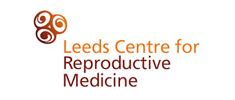This week on January 19th, there is a backbench business debate in the House of Commons about the funding of fertility treatments.
Currently there is insufficient funding provided by the NHS. Furthermore the amount of funding varies widely around the country – there really is a “post code lottery” and a huge amount of unfairness. Overall, this year has seen sustained disinvestment in England. Only 17% of clinical commissioning groups (CCGs) fund 3 cycles, another 17% fund 2 cycles, 63% fund only one cycle and 3% currently fund no treatment at all. Things have got better in Scotland, with three full cycles being funded and the rest of the UK now has to catch up. What many don’t realise is that IVF treatment isn’t as costly as you think and the results are improving all the time. The British Fertility Society (BFS) has been campaigning for a long time together with the national patient group Fertility Network UK and the Fertility Fairness campaign to try to improve the situation in the UK.
We have to look at the bigger picture and put the treatment of infertility into context:
1. We require holistic and easily accessible reproductive medicine services that offer more than just IVF (e.g. ovulation induction, surgery for endometriosis) plus the full range of assisted conception treatments. (The benchmark / tariff for IVF will require consideration of costs for ICSI, FERC, oocyte donation etc.. in due course).
2. IVF is cost-effective with significant benefits to Society from children conceived through IVF.There is clear evidence that the economic gain from children conceived by IVF far outweighs the cost of any treatment. Furthermore the pain and heartache experienced by childless couples causes major psychological morbidity that has far-reaching consequences both for the couples themselves and their families (their parents not being able to become grandparents etc…)
3. Many couples will not require 3 full stimulated cycles and will conceive after their first or second cycle, especially if they have cryopreserved embryos..
4. We have striven to keep multiple pregnancy rates down which has lowered the overall costs to the NHS.
5. Improved funding will result in fewer going overseas for unregulated treatments etc…..and returning to the UK with high order multiple pregnancies, which places additional financial burden on the NHS not to mention the potential for significant morbidity and mortality caused by prematurity.
For all these reasons it is vital that we remove the post-code lottery and provide adequate, equitable treatment for infertility throughout the UK.










